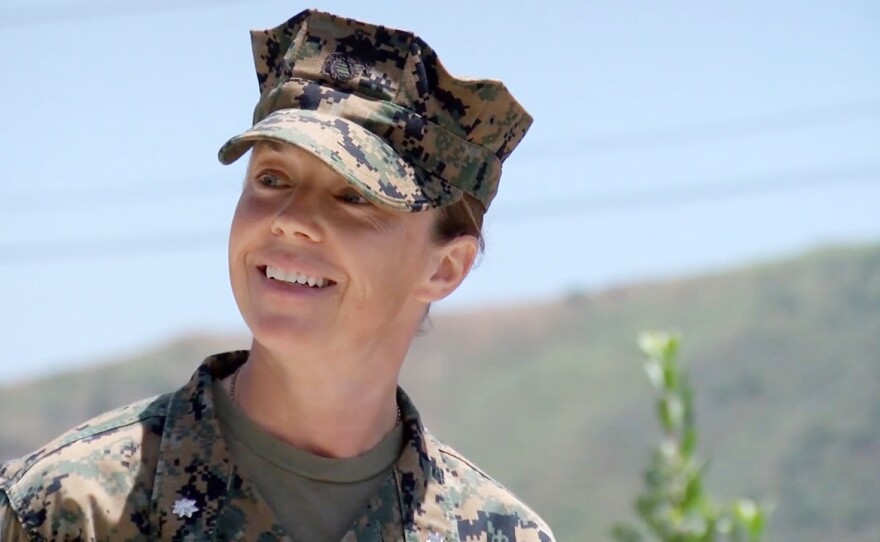The first woman to lead a Marine combat unit completes her tenure Thursday at Camp Pendleton.
The clock is ticking for Lt. Col. Michelle Macander. After the Pentagon required the Marines to open all combat positions to women in 2015, she became the first woman to lead a Marine ground combat arms unit two years ago. Macander is scheduled to wrap up her tenure as part of a routine change of command.
“I’m going to miss the 1,300 Marines that make up this battalion and try to come to work every day, trying to do their best,” she said.
The 1st Combat Engineer Battalion is part of the 1st Marine Division at Camp Pendleton. Since the Pentagon rejected the Marines' request to exempt the Corps from allowing women into combat roles, a relative handful of women have successfully entered combat positions compared to the other services, including the army.
Engineers allowed women to serve in certain roles for 20 years, which put Macander in a better position to rise through the ranks. It may take years for other women to rise to her level in other kinds of combat units like infantry. So she’s the first of many firsts.
“We haven’t had female division commanders. That’s probably some time away. We haven’t a female four-star general but I think ...” Macander took a long pause before saying, “that will happen.”
Despite the Marines' reluctance to open up combat positions, women have been serving in war zones. Macander has two tours in both Iraq and Afghanistan.
“That didn’t keep up with the reality on the ground that female Marines have been in danger in OEF(Operation Enduring Freedom) and OIF (Operation Iraqi Freedom), because they were filling combat roles even if they didn’t have combat specialties,” she said.
The restrictions simply limited the options of the relatively few women who have been able to position themselves to lead Marine units in combat.
“When I first married my wife she said, 'I hope you never deploy,'” she said. “I said that would take away the best part of my job. And so, it is where you learn the most and where you grow the most as a Marine and as an officer. And Marines are in danger and unfortunately, casualties are a part of that.”
Macander now heads back into the classroom in Virginia for three years of school. She is approaching 20 years in the Marines, but retirement isn’t on the horizon. She plans to stay with the Corps and see how far she can lead.






